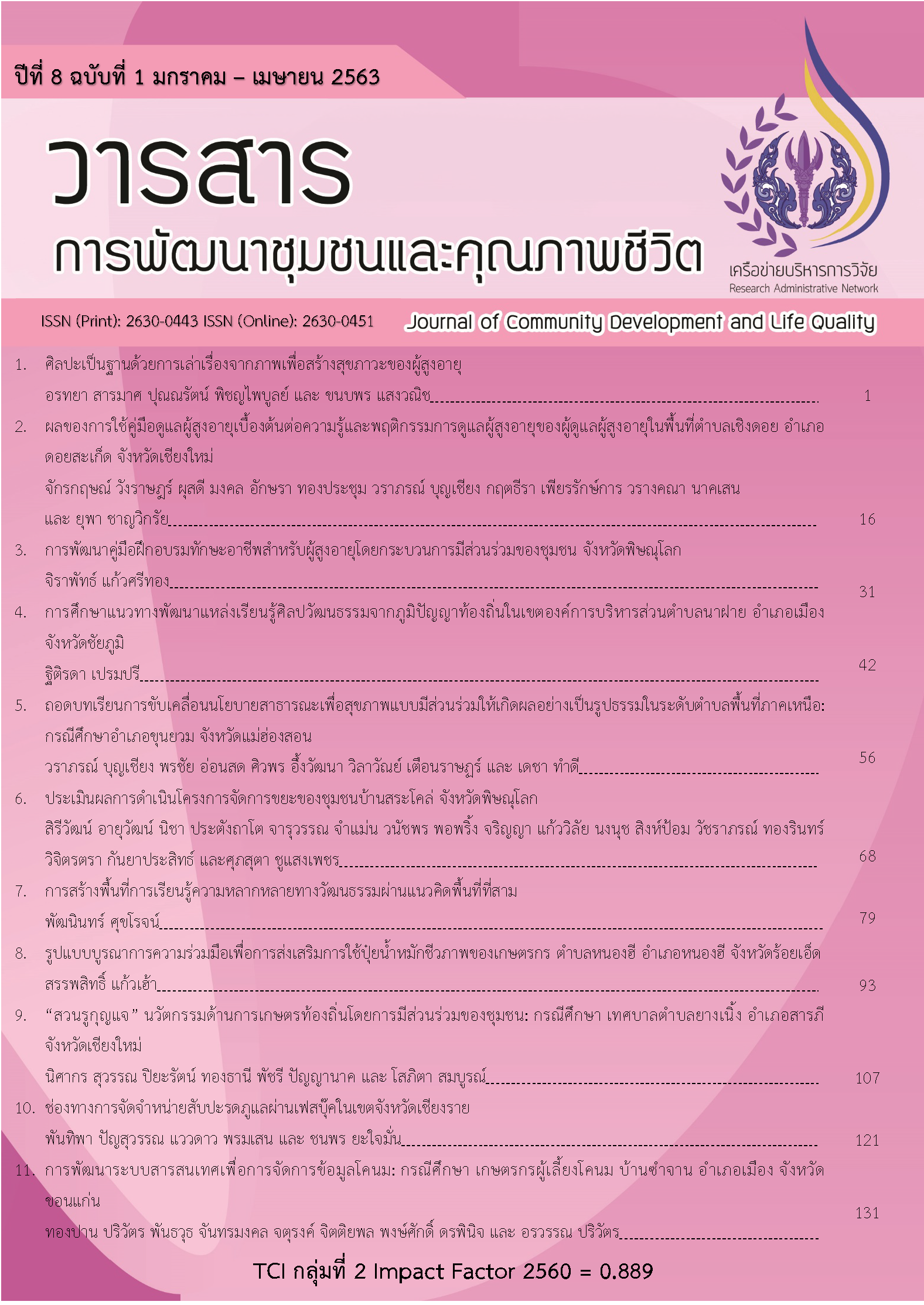Creation of Social Network and Applying Sufficiency Economy Philosophy Toward Balanced Scorecard of Small and Medium Enterprises in Songkhla Province
Main Article Content
Abstract
The purpose of this research was to analyze the causal relationship between the creation of social network, the applying of sufficiency economy philosophy (SEP) and performance in the context of small and medium enterprises (SMEs). The sample consisted of 240 entrepreneurs in Songkhla province by multi-stage sampling. A set of questionnaires was used as a research instrument which measured on checklist and five-point Likert scales. The developed structural equation model (SEM) consisted of 3 latent variables and 12 observed variables. The primary data were analyzed by descriptive statistics, and the goodness of fit of the model was assessed by using structural equation modeling. The results revealed that the measurement model fitted with the empirical data and accounted for a construct reliability of 0.69-0.87, and an average variance of 0.59-0.81. The SEM model was found to have a good fit for the empirical data (c2/df=1.87, CFI=0.93, RMSEA=0.046, SRMR=0.043). An application of the SEP factor was found to mostly affect the SMEs performance with an effect size of 0.65, followed by social network with an effect size of 0.53 at a significant level of 0.05. Additionally, social network positively affected an application of the SEP with an effect size of 0.47.
Article Details
The Editorial Board claims a right to review and correct all articles submitted for publishing
References
Jackson, D.L. 2003. Revisiting sample size and number of parameter estimates: some support for the N:q hypothesis. Structural Equation Modeling 10(1): 128-141.
Janthong, K. 2014. The influence of background, entrepreneurial orientation, and social network toward business success of Ratchaburi entrepreneurs. Journal of Association of Researchers 19(1): 123-134. (in Thai)
Kaplan, R.S. and D.P. Norton. 1992. The balanced scorecard–measures that drive performance. Harvard Business Review 70(1): 71-79.
Mettathamrong, J., C. Phromket and K. Vichasilp. 2019. Analysis of a confirmatory factor model of community enterprise management in Sakon Nakhon province to Thailand 4.0. Journal of Community Development and Life Quality 7(3): 249-260. (in Thai)
Netpradit, N., S. Srisai and J. Wibhatakalasa. 2014. An operational effectiveness for entrepreneurs’ management of ceramic industrial handicrafts products at Lampang provincial area. Journal of Association of Researchers 19(1): 97-110. (in Thai)
Scuotto, V., M. Del Giudice and E.G. Carayannis. 2017. The effect of social networking sites and absorptive capacity on SMEs’ innovation performance. The Journal of Technology Transfer 42(2): 409-424.
Songsom, A. 2019. Effects of innovativeness on competitive advantage of small and medium enterprises (SMEs) in Songkhla province. Veridian E-Journal, Silpakorn University 12(3): 821-835. (in Thai)
Songsom, A. 2014. Structural equation model of small and medium enterprise management based on the philosophy of sufficiency economy. WMS Journal of Management, Walailak University 3(2): 51-56. (in Thai)
Thongboonchoo, C. 2014. Sustainable organization from philosophy of sufficiency economy and total quality management. Journal of Management Science, Nakorn Pathom Rajabhat University 1(1): 13-28. (in Thai)
Thonglard, B., P. Intakhan and B. Budsaba. 2017. Guidelines for improving the sustainable business according to sufficiency economy philosophy of SMEs in Lampang Lumphun and Chiang Mai. Journal of Association of Researchers 21(1): 74-87. (in Thai)
Thongpoon, S., N. H. Ahmad and S. Yahya.
2012. Sustainable performance of
Thai SMEs: Investigating the entrepreneurial competencies and sufficiency economy philosophy. Asia Pacific Journal of Management and Entrepreneurship Research 1(2), 5-20.
Wingworn, B., T. Noithonglek and M. Piriyakul. 2015. The mediating effect of innovation, family constitution, business networking on entrepreneurship and family business performance. Journal of Association of Researchers 20(1): 46-61. (in Thai)
Zhou, L., W.P. Wu and X. Luo. 2007. Internationalization and the performance of born-global SMEs: The mediating role of social networks. Journal of the International Business Studies 38(4): 673-690.


